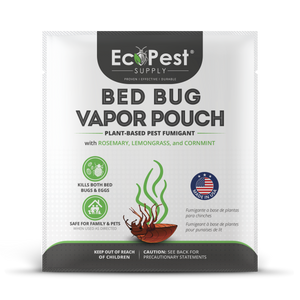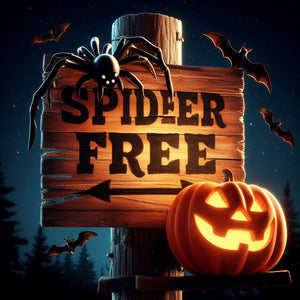
Pests commonly seek shelter in houses and other structures during the winter. Pests ranging from rodents, like mice and rats, to insects like cockroaches and spiders, that are after the cluster of flies inside can create a variety of issues, from property damage to disease transmission.
In this post, we will look at some of the most prevalent winter pests, their habits, and their behavior, as well as prevention and management tips.
You can protect your house from these unpleasant guests and enjoy a pest-free winter season with the correct information and preventative actions.

What Are the Most Common Pests During Winter and How to Get Rid of Them?
Rodents
Rodents, such as mice and rats, are among the most prevalent winter pests.
Because these pests are drawn to warm, protected regions where they may obtain food and water, they frequently invade houses and other structures in quest of these commodities. Rodents can create a variety of issues, including gnawing on electrical lines and causing property damage, as well as spreading illness through their droppings and urine. They can also be a nuisance since they frequently make noises at night and can be difficult to remove once inside a home.
How to Get Rid of Rodents?
It is critical to take some simple preventative steps to keep rats out of your house.
First, fix any cracks or holes on the outside of your home, since these might serve as access opportunities for rats. Gaps surrounding windows and doors, as well as flaws in the foundation or walls, need to be examined and repaired. You should also try to eliminate any food or water sources that may attract rats, such as unsecured garbage cans or standing water. Keeping your house clean and clutter-free can also assist lessen the likelihood of a rat infestation.
If you already have a rodent infestation, you can try a few tips and tricks to eliminate them.
The first step is to determine where the rats are coming from and how they are entering your house. This is frequently accomplished by searching the exterior of your property for entrance ways and looking for rodent indications such as droppings or gnaw marks. You can take steps to limit their entrance and eliminate any food or water supplies that may be enticing them once you've located the entry points and places where the rodents are active.
If you have a significant rat infestation, you might need to hire professional pest control to assist you to get rid of the problem. Professional exterminators can employ a variety of strategies and instruments, including traps, baits, and other ways, to successfully manage and remove rats.
Cockroaches
Cockroaches, in addition to rodents, are frequent winter pests.
Cockroaches are drawn to warm, moist conditions and are frequently found in kitchens and bathrooms. Cockroaches, like rodents, can spread illness through their droppings and create a variety of other issues, such as provoking allergies and asthma.

In the recent study done by Rouhullah Dehghani and Hamid Kassiri for the Archives of Clinical Infectious Diseases we can see the next conclusion:
“Any living thing that comes into contact with or consumes human feces could potentially be involved in the spread of COVID-19. This makes the role of insects like houseflies and cockroaches significant in the transmission of COVID-19 (references 22 and 23).
These insects have the potential to mechanically transmit pathogens such as viruses, bacteria, and parasites. Houseflies and cockroaches can carry over 100 different harmful germs and bacteria on their legs, body hair, mouthparts, feces, and vomit. They eat a wide range of things, including human and animal food waste, spoiled fruits, sugary substances, spit, mucus, different kinds of waste, fresh and dried blood, decaying bodies, and even stool. Given that these insects eat contaminated materials, return them, and defecate on food materials, they are among the most important insects that can mechanically carry bacteria, viruses, worm eggs, and protozoan cysts.”
How to Get Rid of Roaches?
To keep cockroaches out of your house, remove any sources of food or water that they could find appealing. This might involve cleaning and sanitizing your kitchen and bathroom on a regular basis, storing food in sealed containers, and repairing any leaks or plumbing issues that could give cockroaches a water supply. Cockroaches are drawn to clutter, therefore it's also necessary to clean and organize your house on a regular basis.
If you already have a cockroach infestation, you should take a few steps to get rid of the infestation as soon as possible.
The first step is to figure out where the cockroaches are coming from and how they're getting into your house. Search for any access ways and look for cockroaches' droppings or shed exoskeletons. Once you've located the cockroach entrance points and active areas, you can take steps to limit their access and eliminate any food or water supplies that may be attracting them.
There are also a number of control measures that can be used to effectively eliminate cockroaches. One popular way is to use baits, which are put in locations where cockroaches are active and contain a toxin that cockroaches find appealing.
In addition, roach glue traps can capture a lot of roaches in high-traffic areas and help you monitor the infestation. They are very easy to use and dispose of, and they are completely safe for your family and pets.
If you have a serious cockroach infestation or are unable to control the cockroaches on your own, you may need to hire a professional pest control to assist you to get rid of the problem.
Spiders
Spiders are frequently seen as pests, and they can be especially troublesome during the winter.
Spiders are opportunistic and they will follow all the pests that are coming into your home during the winter such as flies, as the food resources are not optimal on the outside. Spiders, in addition to being a nuisance, can also be dangerous, as some species are poisonous and can hurt humans.

How To Get Rid of Spiders?
First, fix any cracks or holes on the outside of your home, since these might serve as access places for spiders. In addition, make sure there are no flies in your home by using multiple sticky fly traps as this will eliminate the food sources spiders prefer the most.
If you have a significant spider infestation or are dealing with poisonous spiders, you may need to contact a professional pest control company to assist you with the infestation.
In addition to these preventive and control techniques, it is important to use caution when dealing with spiders. If you notice a spider in your house, avoid making direct contact with it and remove it with a tool such as a broom or a vacuum. If you have been bitten by a spider, get medical assistance right once, especially if you are unsure if the spider is poisonous.
Bed Bugs
Bed bugs are a common insect found in houses and other structures all year, especially during the winter. These insects are little, flat bugs that feast on the blood of people and other warm-blooded animals at night. Bed bugs are most typically found in beds and other sleeping locations, where they can cause a variety of issues such as bites, discomfort, and allergic reactions.
Bed bugs may become more active in houses and other structures throughout the winter as they seek warm, protected spots to eat and reproduce. Bed bugs can survive in a wide temperature range, thus they can be active even in cold weather. Furthermore, people might spend more time indoors during the winter, which can give more opportunities for bed bugs to feed.

How to Get Rid of Bed Bugs?
To begin, examine your bed and other sleeping spaces on a regular basis for indicators of bed bugs, such as bites, shed exoskeletons, or living insects. If you uncover any indication of bed bugs, you must act quickly to remove the infestation. Bed bugs can readily catch a ride on clothing, luggage, or other belongings and be transferred to your house, so be cautious when traveling.
If you suspect you have a bed bug infestation you can place an interceptor trap under each bed leg. These plastic and durable traps can help you confirm the infestation, reduce the number of bed bugs in your bed and even help with the monitoring of the infestation.
In addition to interceptor traps, you can use multiple glue traps around your bed, on the floor, and even between your mattress and the bed frame to eliminate all the bed bugs that might be hiding in your bed.
In case of severe infestations, it’s always a good idea to call professional exterminators as they will have the best solution to eliminate bed bugs faster and more efficiently.

 Tamara Šikloši
Tamara Šikloši





